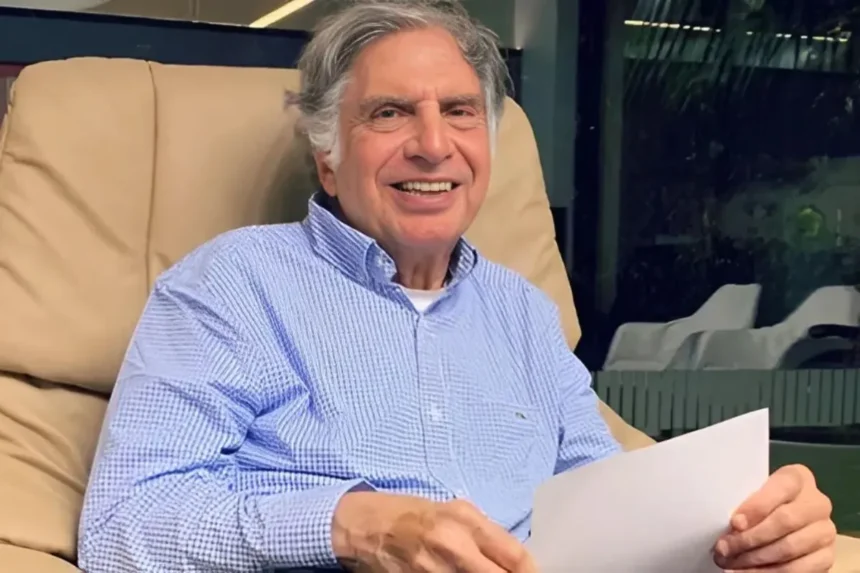Ratan Naval Tata, the former chairman of Tata Group, passed away on October 9, 2024, at the age of 86. He was a towering figure in the business world, known for his visionary leadership, ethical values, and significant contributions to philanthropy. Tata led one of India’s most prominent business conglomerates, and his work reshaped not only the Indian corporate landscape but also the global perception of Indian enterprises.
Early Life and Education
Ratan Tata was born on December 28, 1937, into the illustrious Tata family, but his early years were marked by personal challenges. His parents separated when he was just 10 years old, and he was raised by his grandmother, Navajbai Tata. Despite these early difficulties, Tata excelled in academics. He studied architecture at Cornell University, USA, and later completed an advanced management course at Harvard Business School in 1975.
Rise to Leadership at Tata Group
In 1962, Ratan Tata began his career at Tata Sons, initially working on the shop floor, where he gained practical experience in the family business. His leadership qualities became evident in the 1970s and ’80s when he held roles at companies like NELCO and Empress Mills. Although some early ventures faced challenges, Tata’s persistence and vision were undeniable.
In 1991, Ratan Tata became the chairman of Tata Group, succeeding his uncle J.R.D. Tata. Despite initial doubts about his leadership, Tata quickly proved his mettle. Under his leadership, the Tata Group saw a remarkable transformation. He spearheaded the modernization of the company, entered new sectors like telecoms, steel, and automotive, and led a series of strategic global acquisitions that cemented Tata Group’s presence on the international stage.
Global Expansion and Key Acquisitions
One of the hallmarks of Ratan Tata’s leadership was his emphasis on global expansion. In 2000, Tata Group acquired the British tea brand Tetley, marking the first major foreign acquisition by an Indian company. This was followed by the purchase of Corus, a European steel company, in 2007 for $13 billion, one of India’s largest overseas acquisitions at the time.
In 2008, Tata Motors acquired Jaguar Land Rover from Ford for $2.3 billion, a move that not only expanded Tata’s automotive portfolio but also significantly boosted India’s presence in the global luxury automotive market. Tata’s strategic foresight in acquisitions allowed the company to become a global powerhouse, with operations in over 100 countries and revenues exceeding $165 billion.
A Commitment to Innovation
Ratan Tata’s commitment to innovation was exemplified by the launch of the Tata Nano in 2008, which aimed to provide affordable transportation to the masses. Though the Nano faced challenges, Tata’s vision for creating accessible, low-cost vehicles showcased his innovative thinking and dedication to improving the lives of ordinary Indians.
Philanthropy and Social Responsibility
One of the defining aspects of Ratan Tata’s legacy is his philanthropy. Over 65% of his personal shares in Tata Sons were directed to charitable causes through the Tata Trusts. His contributions helped fund education, healthcare, and social development initiatives across India. Tata’s philanthropic efforts reflected his deep commitment to improving the quality of life for Indians and addressing the country’s most pressing social issues.
Tata was also an advocate for corporate ethics and sustainable growth, often emphasizing the importance of balancing business success with social responsibility. His philanthropic work earned him numerous accolades, including India’s highest civilian awards, the Padma Bhushan in 2000 and the Padma Vibhushan in 2008.
Awards and Recognition
Throughout his illustrious career, Ratan Tata received numerous honors, both in India and abroad. In 2010, he was awarded the prestigious Oslo Business for Peace Award, and in 2014, he was recognized by Queen Elizabeth II with the Knight Grand Cross of the Order of the British Empire (GBE) for his contributions to industry and philanthropy. His leadership style, characterized by humility and compassion, made him one of the most respected figures in the global business community.
Life After Retirement
Although Tata stepped down as chairman of Tata Group in 2012, he remained active in business and philanthropy. He continued to mentor young entrepreneurs, investing in promising start-ups, and playing a key role in India’s growing tech industry. Despite his vast wealth and influence, Ratan Tata led a modest life, residing in a simple home in Mumbai and continuing to drive a Tata sedan.
Final Thoughts
Ratan Tata’s passing marks the end of an era for Indian industry, but his legacy of leadership, innovation, and social responsibility will endure for generations. As a business titan who transformed the Tata Group into a global conglomerate and a compassionate philanthropist, Tata will be remembered not only for his contributions to the business world but also for his deep commitment to humanity and ethical values.
His profound influence on the Indian economy, society, and global business community remains a testament to his visionary leadership. Ratan Tata’s life serves as an inspiration to future generations of business leaders, who will undoubtedly look to his example as a guiding light.







